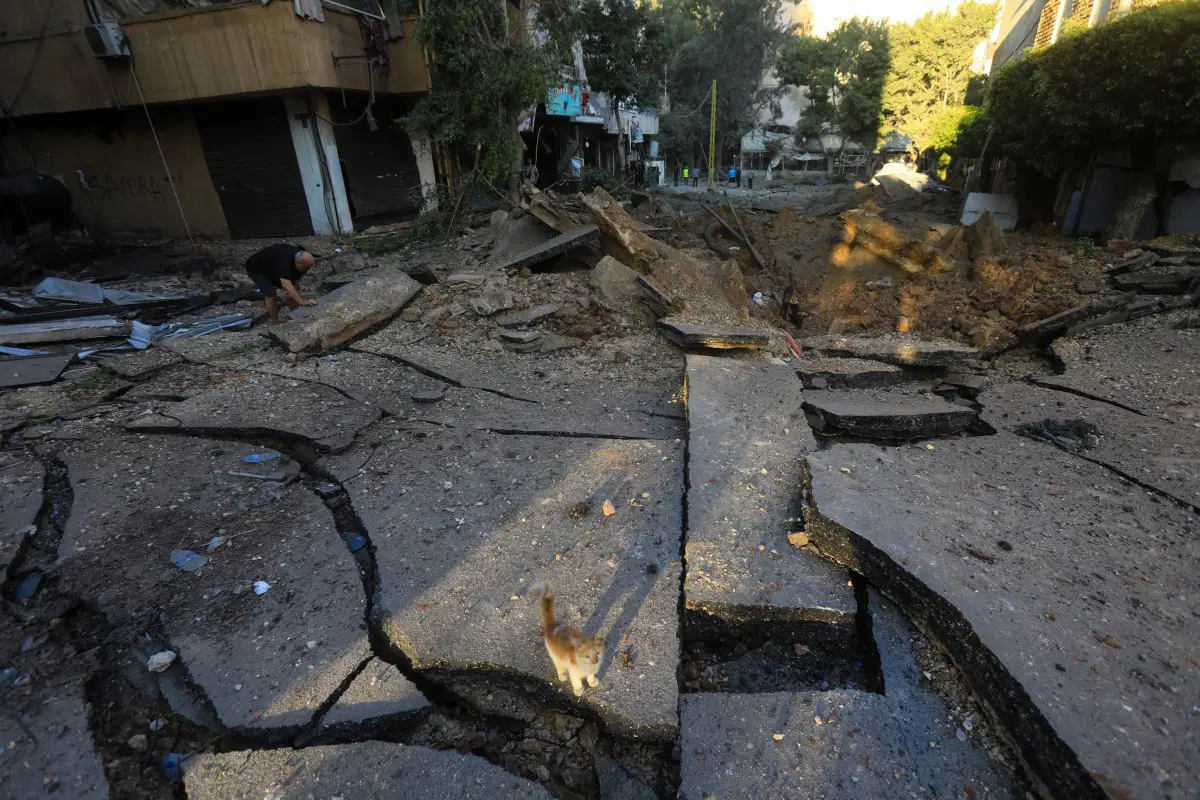When an Israeli airstrike killed her employer and destroyed nearly everything she owned in southern Lebanon, it also crushed Fatima Samuella Tholley’s hopes of returning home to Sierra Leone to escape the spiraling violence.
With a change of clothes stuffed into a plastic bag, the 27-year-old housekeeper recounted her journey to the capital, Beirut, in an ambulance alongside her cousin.
Bewildered and terrified, the pair were thrust into the chaos of the bombarded city, which was unfamiliar to them apart from the airport where they had arrived months earlier.
“We don’t know today if we will live or not, only God knows,” Fatima told AFP via video call, breaking down in tears. “I have nothing… no passport, no documents,” she added.
The cousins have spent days sheltering in the cramped storage room of an empty apartment offered to them by a man they had met during their journey. With no access to TV news and unable to communicate in French or Arabic, they could only watch from their window as the city was pounded by airstrikes.
The spike in violence in Lebanon since mid-September has killed more than 1,000 people and forced hundreds of thousands to flee their homes, as Israel bombards Hezbollah strongholds around the country.
The situation for the country’s migrant workers is particularly precarious, as their legal status is often tied to their employer under the “kafala” sponsorship system governing foreign labor. Rights groups argue that this system allows for numerous abuses, including withholding wages and confiscating official documents, which serve as the workers’ only lifeline out of the country.
“When we came here, our madams received our passports; they seized everything until we finished our contract,” said 29-year-old Mariatu Musa Tholley, who also works as a housekeeper. “Now [the bombing] burned everything, even our madams… only we survived.”
Sierra Leone is currently working to establish how many of its citizens are in Lebanon, aiming to provide emergency travel certificates to those without passports, according to Kai S. Brima from the foreign affairs ministry. The impoverished West African nation has a significant Lebanese community dating back over a century, heavily involved in business and trade.
Each year, scores of migrants travel to Lebanon, hoping to earn remittances to support their families back home.

